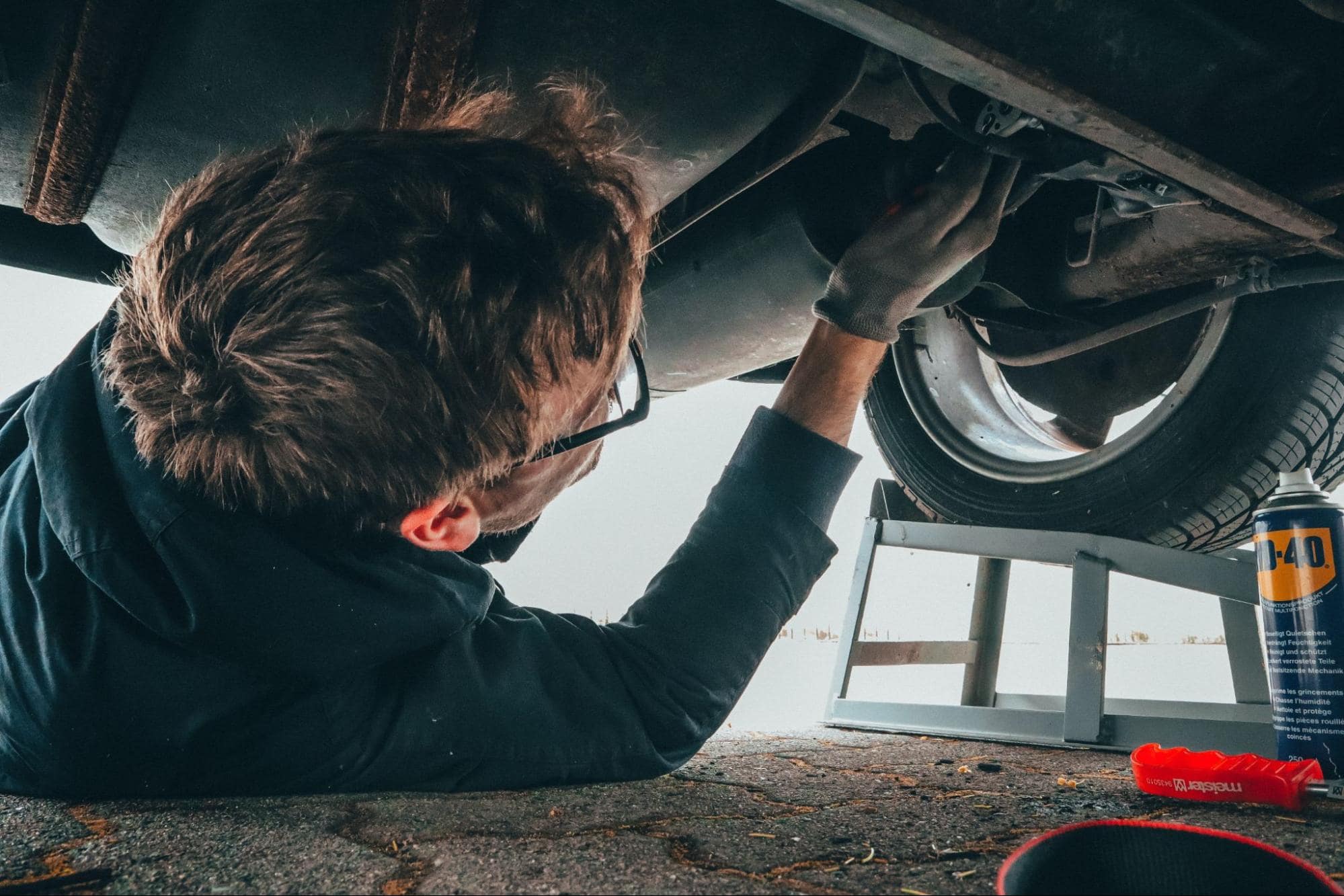All Categories
Featured
Winter season driving can be one of the most challenging and possibly dangerous problems for any kind of automobile owner. Preparing your auto for winter is critical to make certain that it carries out safely and reliably.
![]()
Conclusion. Wintertime driving calls for more preparation than merely wrapping and getting behind the wheel. To remain safe when driving, ensure your vehicle is winter-ready by inspecting the battery, tires, brakes, and fluids. Normal upkeep, incorporated with emergency preparedness, can make all the distinction when browsing icy roadways and difficult weather. By adhering to these pointers, you'll be fully equipped to tackle the cold weather with confidence, safety, and comfort.
- Examine the Battery. Cold temperature levels can significantly impact your automobile's battery performance. Have your battery evaluated to ensure it is in excellent condition.
- Check the Tires. Winter problems demand extra from your tires. Winter tires are made with special step patterns and compounds that give far better hold on snow and ice. If you live in a location with rough winters, take into consideration switching over to winter tires. Check the walk depth and guarantee they have sufficient grasp if you're making use of all-season tires. It's time to replace the tires if the walk is worn. Regularly inspect tire pressure, as cold temperature levels can cause it to go down, leading to minimized traction and handling.
- Check Liquids and Antifreeze Degrees. In winter months, your automobile relies upon its liquids to operate successfully, so guarantee that your antifreeze goes to the appropriate degree. The coolant system stops your engine from cold, so completing the antifreeze or having it purged and changed if essential is critical. Likewise, examine the levels of engine oil, brake liquid, and windscreen washer fluid. Make certain you make use of a winter-grade windshield washing machine fluid that will not freeze in the chilly, and keep the tank complete to make certain great exposure throughout rainy or snowy conditions.
- Inspect the Wipers and Windscreen. Change old, used wipers, and make use of winter wiper blades, which are extra sturdy and immune to ice build-up. Examine the windscreen for chips or cracks that can worsen in freezing temperatures.
- Examination Your Brakes. Brakes are much more essential in wintertime driving. Slippery problems require fast feedbacks, so make sure your brake pads, rotors, and brake fluid are all in excellent problem. Have them changed or topped off if your brake pads are put on or your brake liquid is low. When driving in icy or snowy problems, constantly maintain a secure distance from other automobiles and use extra care when stopping to avoid crashes.
- Get ready for Emergencies. Despite your best initiatives to prepare your vehicle, winter season driving can still present unanticipated obstacles. To stay secure, keep an emergency kit in your auto. This ought to include products such as a covering, flashlight, very first help set, jumper wires, extra gloves and hats, and a shovel. A bag of sand or salt can additionally be beneficial for grip if your lorry obtains stuck. Also, keep some non-perishable food and water in the car in case you obtain stranded.

- Guarantee Correct Illumination. Winter season frequently implies shorter days, so it's essential to make certain your headlights, tail lights, and brake lights are working effectively. Examine for any kind of burned-out light bulbs and replace them prior to you struck the roadway.
- Guarantee Appropriate Tire Chain or Grip Aid Readiness. If you live in a location that frequently experiences severe winter months weather condition, take into consideration keeping tire chains or grip aids in your car. These can be important when driving in deep snow or over ice-covered roadways. Ensure you understand just how to mount them appropriately and exercise ahead of time, so you're not captured unsuspecting in an emergency situation.
- Inspect Your Heating and Defrosting Equipments. You'll desire your home heating and thawing systems to be in optimum working order for those chilly, icy mornings. Evaluate the heating system and defroster to ensure they are functioning well, and change any type of cabin air filters if needed to maintain excellent air flow. A defective heating unit can make driving uneasy and also hazardous, particularly when roads are icy and presence is endangered by fogged windows.
Conclusion. Wintertime driving calls for more preparation than merely wrapping and getting behind the wheel. To remain safe when driving, ensure your vehicle is winter-ready by inspecting the battery, tires, brakes, and fluids. Normal upkeep, incorporated with emergency preparedness, can make all the distinction when browsing icy roadways and difficult weather. By adhering to these pointers, you'll be fully equipped to tackle the cold weather with confidence, safety, and comfort.
Latest Posts
Uncover Save Big on Car Maintenance with Montclare Auto Repair’s Exclusive Deals
Published May 26, 25
1 min read
How Routine Car Maintenance at Montclare Auto Repair Saves You Money
Published May 26, 25
1 min read
Improve Your Home's Exterior with Weathercraft's Siding Solutions
Published May 24, 25
1 min read
More
Latest Posts
Uncover Save Big on Car Maintenance with Montclare Auto Repair’s Exclusive Deals
Published May 26, 25
1 min read
How Routine Car Maintenance at Montclare Auto Repair Saves You Money
Published May 26, 25
1 min read
Improve Your Home's Exterior with Weathercraft's Siding Solutions
Published May 24, 25
1 min read